Africam’s first camera in the Eastern Cape of South Africa – Founders Lodge by Mantis
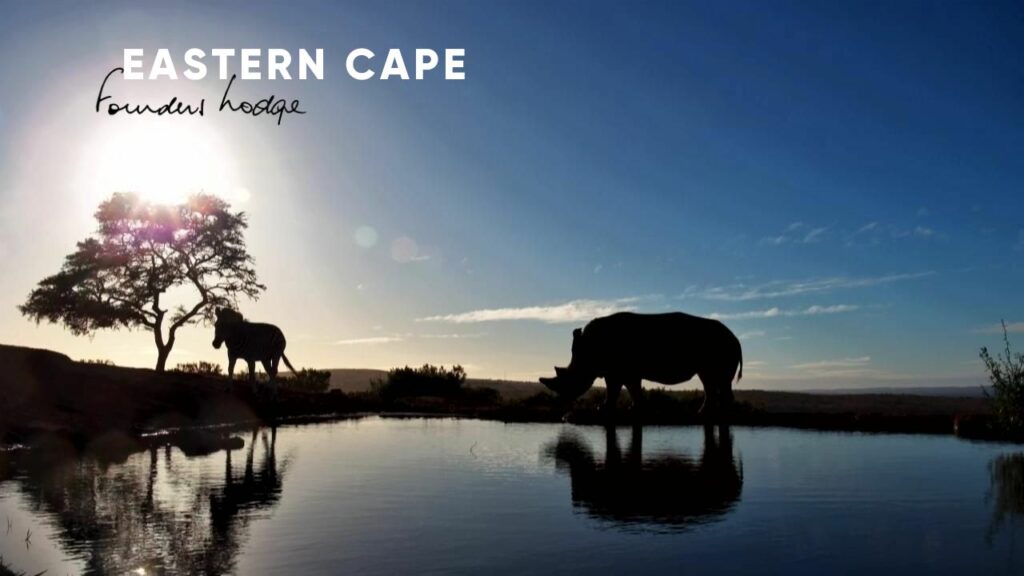
Mantis – Man And Nature Together Is Sustainable
Mantis is a hospitality group founded by conservationist Adrian Gardiner in 2000. Mantis grew from Adrian’s vision to restore farmland which he developed into a Private Game Reserve. This was the first private game reserve in the Eastern Cape.
Founders Lodge is a 7 suite wildlife safari lodge located in the Eastern Cape, just one hour from Gqeberha.
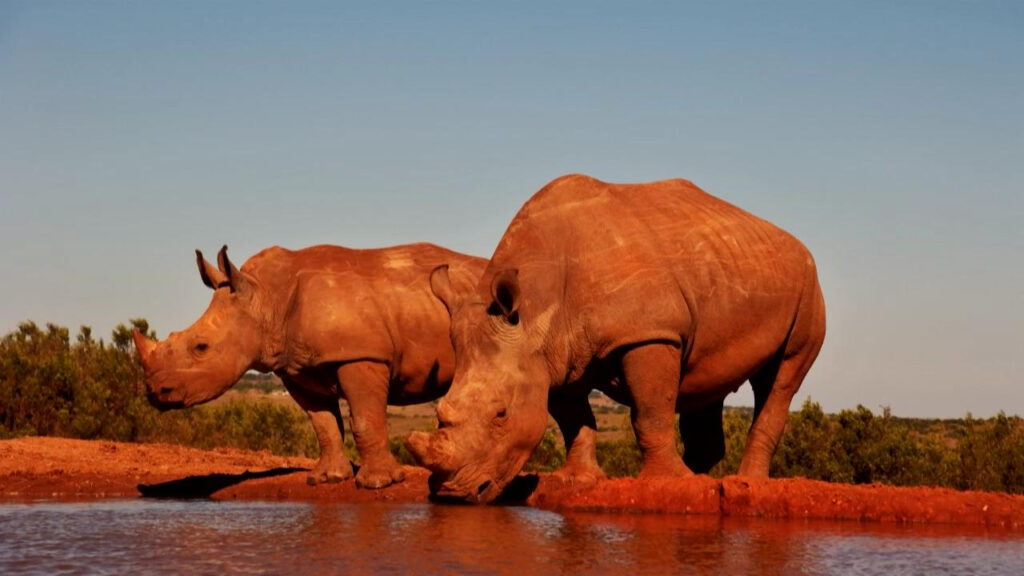
The Founders camera is the first location that allows viewers to see the incredible white rhino, as they are protected at this private nature reserve.
White rhino are the second largest land mammal on Earth and are part of the group known as the ‘big five’, a term coined by hunters to describe the most dangerous animals to hunt on foot. There are two subspecies of white rhino, the southern white rhino which is considered near-threatened but whose population is in decline and the northern white rhino which is critically endangered. South Africa has 93% of the southern white rhino population. Males weigh up to 2300 kg while females weigh up to 1700 kg. These are stocky animals with a short neck and short legs. Their heads are large with two horns on the snout made of keratin; the front horn is long, averaging 60 cm but may be as long as 150 cm, the second horn in short and sits behind the long front horn. Females tend to have thinner and longer horns than males whose horns are bulkier. The white rhino has a wide muzzle and a square mouth with a stiff bottom lip which the flexible upper lip manoeuvres grass onto to be cropped. Their eyes are small and they have poor vision, but they make up for this with excellent hearing facilitated by funnel-like, independently moving ears. Their sense of smell is also excellent. White rhino have a prominent muscular hump that supports their large head and holds it close to the ground for grazing and picking up olfactory (scent) cues. Their skin grey and creased, and despite their large size, are able to charge at a speed of up to 40 km/h.
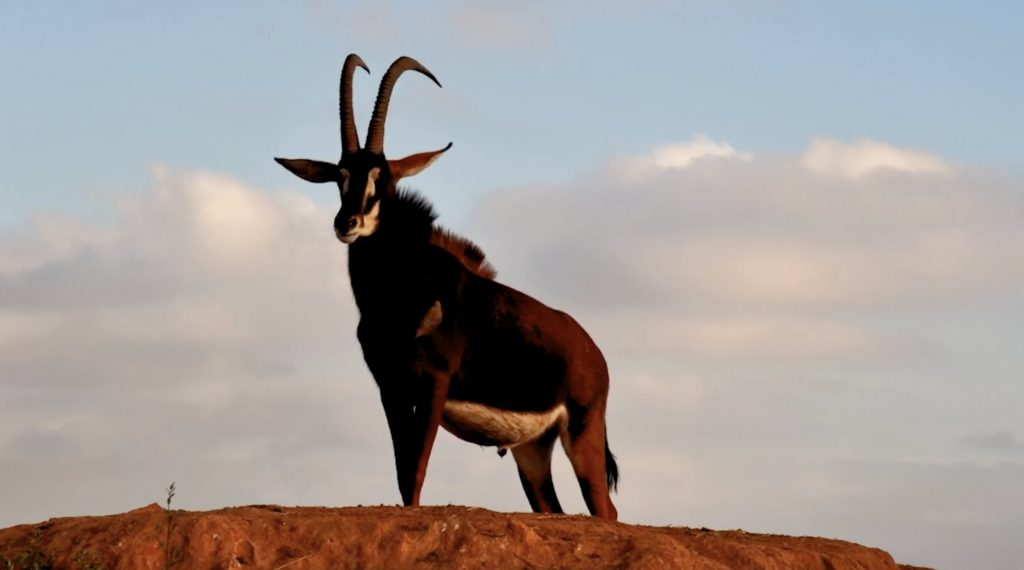
You are also able to frequently view sable antelope, a special sighting that gets a lot of points on SafariSnaps.
The sable antelope closely resembles the roan antelope with which it shares the genus Hippotragus. Males are heavier and taller than females, weighing 235 kg compared to 220 kg, respectively. These are robust and compact bovid antelope that typically have a chestnut to black coat. Females and calves are more chestnut in colour with male calves turning dark to black around 3 years old. Sable have an upright mane that runs along the spine from the head to the shoulders, as well as shorter mane under the throat. The underparts, cheeks and chin are white, which creates a striking contrast on the sable’s body. A long black stripe runs from the forehead, down the face along the nose. Both bulls and cows have heavily ridged horns that curve backwards, resembling a scimitar; in females these horns can reach up to 1 m, in males they can reach 1.65 m. Sable live for up to 19 years in the wild.
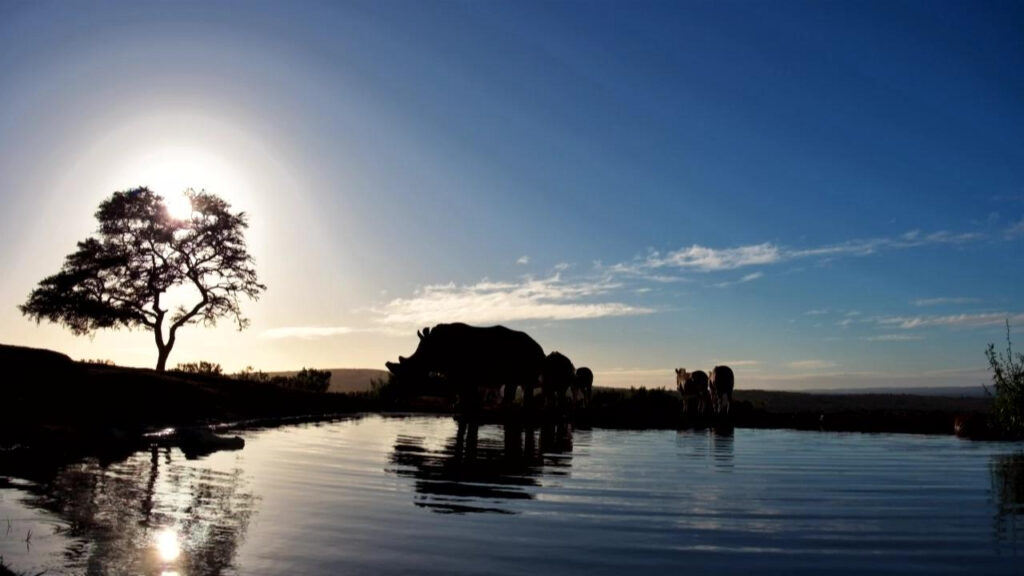
Founders Lodge boasts an incredible photographic hide where wildlife photographers can capture outstanding images. The hide was designed with by renowned wildlife photographer Nelis Wolmarans, considering every small detail for capturing the perfect picture.
Distinctive Perspectives: Lower angles create a cleaner image, making your subject stand out amidst its surroundings.
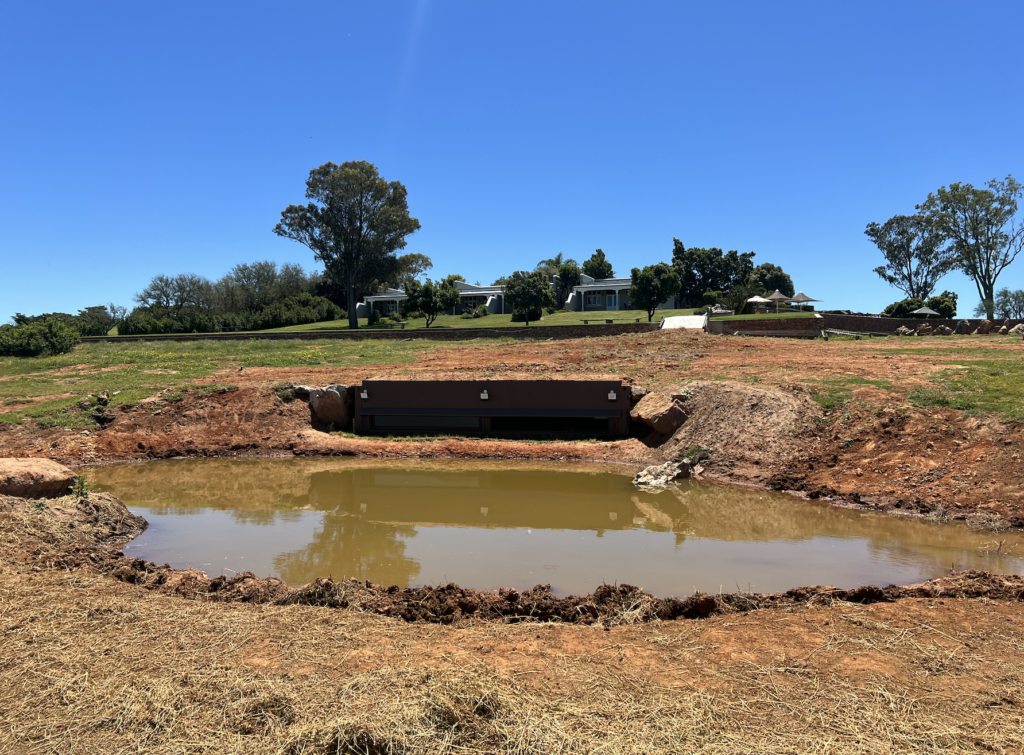
The hide is accessed through a 35-meter underground tunnel, emerging at a watering hole surrounded by wildlife, including rhino, giraffe, zebra, sable, and a myriad of bird species.





